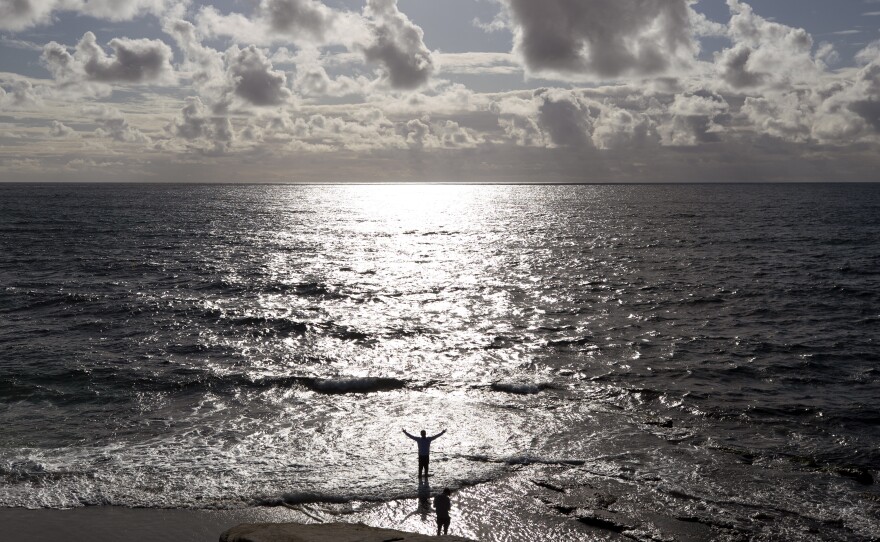The holidays are often a stressful time. Feelings of loneliness or sadness can surface in the midst of our traditional celebrations. But this year, the pandemic has pushed that potential for discontent off the charts.
We’ve endured almost a full year of the world turned upside down. When we’re not concerned about our own health or our family's health – we're concerned about finances, being isolated, missing seeing friends and relatives and wondering if life as we know it will ever get back to normal.
Already back in August, the Centers for Disease Control found a 41% increase in reports of adverse mental and behavioral health conditions associated with the COVID-19 pandemic.
We asked our audience to describe their own experiences with mental health challenges over the last year.
"Maybe I have a low-grade depression, but I think it just may be lack of outside stimulation and desire to do something," listener Sam Johnson said. "I'm never hungry, and spend most of my day in the most comfortable place in the house wearing my very comfortable jammies. If it was possible to see my friends, life would be very different."
KPBS listener Jessica Gonzalez said she can't shake the feeling of impending doom.
"People are dying, families can’t feed their children. I have both survivors’ guilt and loneliness," Gonzalez said. "My husband still works at his medical practice, he’s a hero and he’s absent when he comes home. I can’t wait until this is over for everyone. I cry every day."
Michael Dale Kimmel is a therapist with a private practice in San Diego. He said half of his clients are members of the LGBTQ community.
“The other 50% is more based on anxiety, panic attacks, people that worry a lot, people that are really anxious and let me tell you, that has been really exacerbated by COVID."
In a special program on KPBS Midday Edition, we explore the pandemic’s impact on the mental health of communities hardest hit by COVID-19, on our seniors, and our kids and young adults.
Resources:
For referrals and support: NAMI San Diego Helpline at (800) 523-5933
Online resources to find professional help: Anxiety and Depression Association of America, International OCD Foundation
To find a therapist committed to serving Black and Latinx/Hispanic communities: Melanin & Mental Health®
For parents: Child Mind Institute
For seniors: The Connections Program, which links seniors to volunteers who will check in with the seniors over the phone and can point them to other resources
Resources for communities in need: The Chicano Federation
Meditation apps: Balanced Mind with Julie Potiker, Insight Timer











